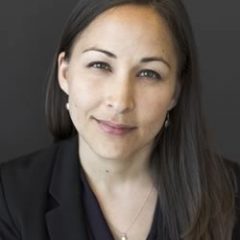Older Adult, Older Person, Senior, Elderly or Elder: A Few Thoughts on the Language we use to Reference Aging
October 30, 2011
BY Alison Taylor
30 October 2011—The English language seems to lack appropriate, positive terminology for referencing aging in a way that recognizes the strength, wisdom and often privilege associated with chronological age. “Elderly” connotes frailty. “Senior” is too limited – in Canada, the word “senior” indicates a person is specifically age 65 of older; the term is generally used in a government context, to reference programs, portfolios, and entitlements associated with this benchmark age. In this sense the term senior has lost its capacity to signify people outside of institutional referents.
In the legal field we often speak of “elder law” as an area of focus. But using the term “elder” to universally reference aging is problematic. “Elder”, while suggesting wisdom, also tends to be associated with spiritual or community leaders or sages in a First Nations, Métis or Inuit context. Indeed the Oxford English Dictionary provides multiple definitions for the word “elder”, including, “a leader or senior figure in a community or tribe.” It is important that these meanings do not slide into each other and create uncertainty about intention. For it is certainly not the case that all individuals of advanced age in Canada are revered or respected for the wisdom they have accumulated with aging.
Sometimes we use the term “older adult”, but this expression is not ideal. “Older adult” rolls off the tongue thickly in a way that suggests a euphemism for something less comfortable, a reluctance to offend perhaps. It is an awkward expression you will not find in regular conversation, and it is not likely many people think of themselves as “older adults” as they age.
“Older person” or “older people” are possibly preferable terms because they reflect better how the general population refers to older members of our families and communities. “Older person” is often the term of choice on the international front, such as in the title of the International Day of Older Persons, which was created by the United Nations in 1990. (In Canada, interestingly, we now recognize “Seniors Day” on October 1.) The term “person” is perhaps more positive as it recalls the inherent personhood of every individual, reminds us that everyone has worth regardless of age, and that aging does not someone de-value a person.
One of the advantages of the expressions “older adult” or “older person” is that they acknowledge the relativity of aging. The experience of aging varies from person to person and is often experienced in degrees. Social policy has come to recognize this reality by fragmenting categories of aging into the younger old (65-74), the old (75-84), and the older old or oldest old (85 plus). Of course these slices of aging are fictions of categorization that serve to help us speak of patterns of experience, or possibility more accurately, clusters of data about experience. Still, the practice of dividing aging into three categories reminds us of the diversity of the experience of aging, and the misleading aspects of using one term to denote age.
Another piece of the puzzle is that advantages and disadvantages will accumulate with age differently according to other aspects of a person’s identity, experience or social privilege. Poverty, disease and disability can mean that the physical, mental and cognitive declines that can be linked to aging will occur earlier along the life course, even before the benchmark age of 65. The privilege of wealth can heighten a person’s vulnerability to financial abuse in advanced age. Experience is so infinitely particular. However, at the same time, aging remains one of the few universals. We are all aging, and we are always aging, from the moment of birth – to be alive is to experience the aging process, and although the term “aging” is often used to identify individuals perceived as “old” or “elderly”, this practice of language is misleading.
In all our writings we strive to speak of aging in a way that recognizes aging as a diverse category, as a site of vulnerability or strength. Language can be a slippery tool, and even with the best of intentions, values can hide behind word choice, and words are not neutral.







































